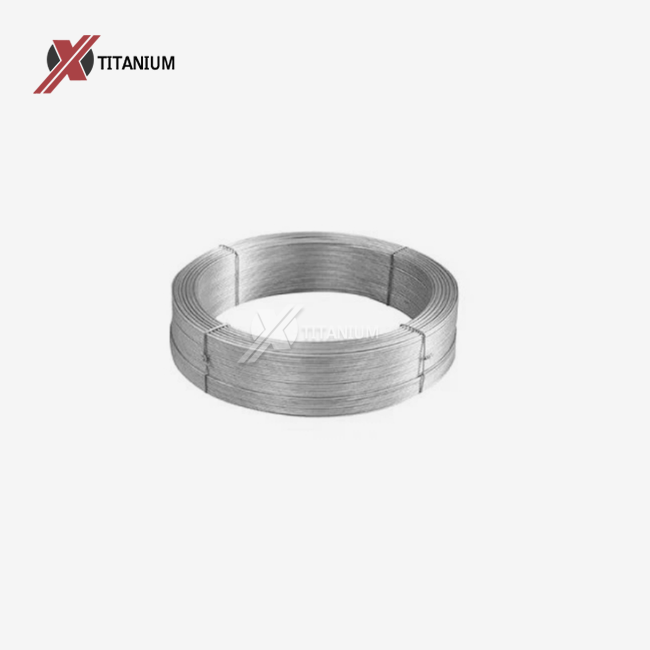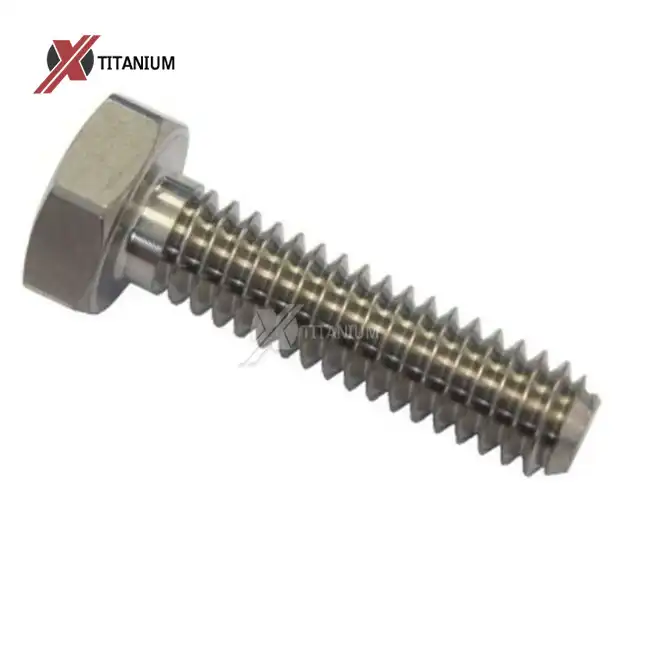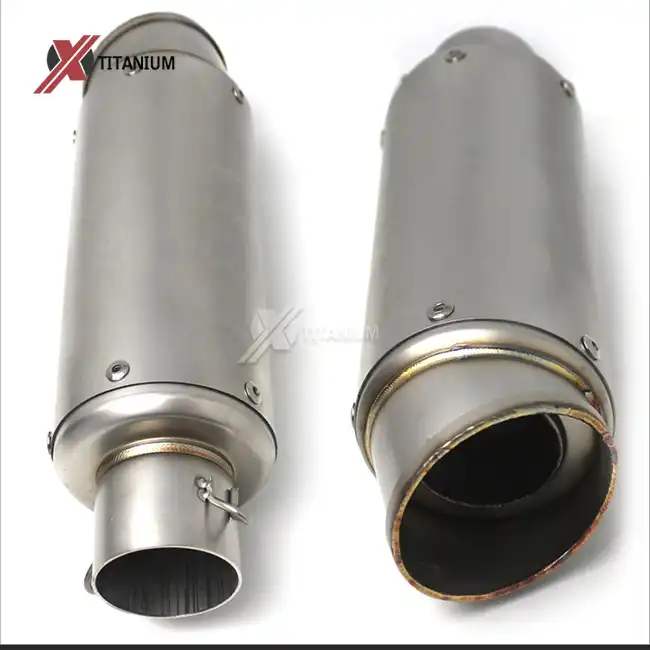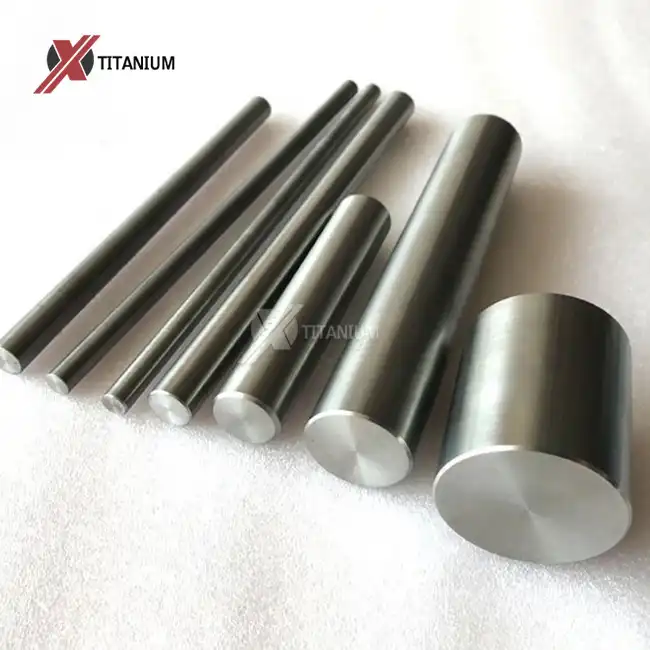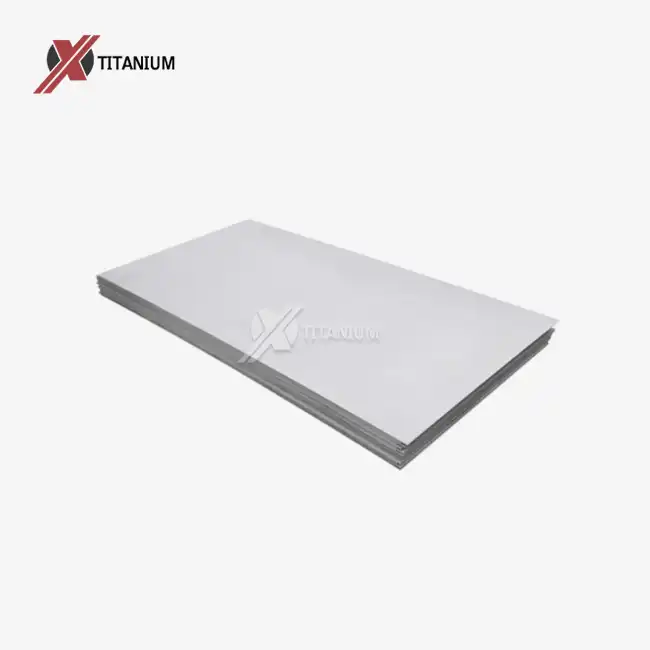The Role of Pure Titanium Wire in Modern Chemical Engineering
Electrochemical Applications: A Driving Force for Titanium Wire Demand
Pure titanium wire has become an integral component in various electrochemical processes, revolutionizing industries that rely on these techniques. Its unique properties make it an ideal material for electrodes, particularly in chlor-alkali production. This process, which involves the electrolysis of brine to produce chlorine and sodium hydroxide, requires electrodes that can withstand highly corrosive environments. Pure titanium wire, with its exceptional corrosion resistance, has emerged as a superior alternative to traditional materials.
Moreover, the use of titanium wire in electrowinning processes has gained significant traction. This technique, used for metal recovery from solutions, benefits from titanium's durability and conductivity. As industries seek more efficient and environmentally friendly methods of metal extraction, the demand for pure titanium wire in electrowinning applications continues to grow.
Catalytic Processes: Enhancing Efficiency with Titanium Wire
The petrochemical industry has witnessed a substantial increase in the use of pure titanium wire for catalytic processes. Titanium's resistance to corrosion and high-temperature stability make it an excellent choice for catalyst support structures. These structures, often in the form of meshes or grids made from titanium wire, provide an ideal surface for catalysts in various chemical reactions.
In addition to petrochemicals, the pharmaceutical industry has also embraced titanium wire for catalytic applications. The material's biocompatibility and chemical inertness are particularly valuable in the synthesis of complex pharmaceutical compounds. As the demand for more efficient and selective catalytic processes grows, so does the need for high-quality pure titanium wire.
Corrosion Resistance: A Key Factor in Chemical Processing
The exceptional corrosion resistance of pure titanium wire is perhaps its most valuable attribute in chemical processing. Many chemical processes involve highly aggressive environments that can rapidly degrade conventional materials. Titanium's ability to form a stable, protective oxide layer allows it to withstand exposure to a wide range of corrosive substances, including chlorides, sulfuric acid, and organic compounds.
This resistance to corrosion has led to increased use of titanium wire in heat exchangers, reaction vessels, and piping systems within chemical plants. As industries strive for longer equipment lifespans and reduced maintenance costs, the demand for corrosion-resistant pure titanium wire continues to rise.
Emerging Technologies Driving Pure Titanium Wire Adoption
Additive Manufacturing: New Frontiers for Titanium Wire
The advent of additive manufacturing, particularly wire arc additive manufacturing (WAAM), has opened new avenues for pure titanium wire utilization. This technology allows for the creation of complex, custom-designed components with minimal material waste. In chemical engineering applications, WAAM enables the production of specialized reactor components, heat exchanger parts, and other critical elements that benefit from titanium's unique properties.
As additive manufacturing techniques continue to evolve, the demand for high-quality pure titanium wire is expected to grow. This trend is particularly evident in industries requiring bespoke solutions for challenging chemical environments, such as offshore oil and gas processing or specialized chemical manufacturing.
Energy Storage and Conversion: Titanium's Role in Advanced Technologies
The push towards sustainable energy solutions has also contributed to the increased demand for pure titanium wire. In hydrogen production through water electrolysis, titanium electrodes are gaining popularity due to their corrosion resistance and efficiency. As the hydrogen economy expands, the need for titanium wire in electrolyzers and related equipment is likely to surge.
Furthermore, titanium wire is finding applications in advanced battery technologies. Its use in current collectors for certain types of batteries, particularly those designed for high-temperature or corrosive environments, is driving demand. As energy storage becomes increasingly critical in various industries, including chemical processing, the role of titanium wire in these applications is expected to grow.
Environmental Technologies: Titanium Wire in Pollution Control
The growing emphasis on environmental protection has led to increased use of titanium wire in pollution control technologies. In flue gas desulfurization systems, titanium components, including wire meshes and electrodes, play a crucial role in removing sulfur dioxide from industrial emissions. The material's resistance to both acidic and alkaline environments makes it ideal for these applications.
Additionally, titanium wire is being utilized in advanced water treatment processes, such as electrochemical oxidation for the removal of persistent organic pollutants. As environmental regulations become more stringent worldwide, the demand for effective and durable materials like pure titanium wire in pollution control systems is expected to rise.
Future Prospects and Challenges in Pure Titanium Wire Utilization
Innovations in Titanium Wire Production
The future of pure titanium wire in chemical processes is closely tied to innovations in its production methods. Current research focuses on developing more efficient and cost-effective ways to manufacture high-purity titanium wire. Advances in melting techniques, such as electron beam melting and plasma arc melting, are enabling the production of titanium wire with improved consistency and purity.
Moreover, efforts to reduce the energy intensity of titanium production are ongoing. These developments could lead to more sustainable and economically viable pure titanium wire, potentially expanding its use in a broader range of chemical applications.
Challenges in Scaling Up Titanium Wire Applications
Despite the growing demand, scaling up the use of pure titanium wire in chemical processes faces several challenges. The relatively high cost of titanium compared to more conventional materials remains a significant barrier for some applications. Additionally, the complexity of working with titanium, including specialized welding and forming techniques, can pose challenges in widespread adoption.
To address these issues, industries are investing in research to develop more cost-effective titanium alloys and improve fabrication techniques. Collaborative efforts between titanium producers, chemical engineering firms, and research institutions are crucial in overcoming these hurdles and unlocking the full potential of pure titanium wire in chemical processes.
Regulatory Landscape and Material Standards
The increasing use of pure titanium wire in critical chemical processes has led to a growing focus on regulatory compliance and material standards. Industries are working to establish and refine standards for titanium wire used in specific chemical applications, ensuring consistency and reliability across different suppliers and applications.
As the regulatory landscape evolves, particularly in areas such as pharmaceutical manufacturing and environmental protection, the demand for certified, high-quality pure titanium wire is likely to increase. This trend may drive further specialization in titanium wire production, with manufacturers focusing on meeting the specific needs of different chemical processing sectors.
Conclusion
The demand for pure titanium wire in chemical processes is being driven by a convergence of factors, including advancements in electrochemical and catalytic applications, the need for corrosion-resistant materials in aggressive environments, and emerging technologies in additive manufacturing and energy storage. The material's unique combination of properties – corrosion resistance, strength, and biocompatibility – makes it invaluable in a wide range of chemical engineering applications. As industries continue to innovate and seek more efficient, durable, and environmentally friendly solutions, the role of pure titanium wire is expected to expand further, driving ongoing research and development in titanium production and application technologies.
Are you looking for high-quality pure titanium wire for your chemical processing applications? Baoji Chuanglian New Metal Material Co., Ltd. specializes in manufacturing and exporting titanium products, including pure titanium wire tailored to your specific needs. With over a decade of experience in titanium product machining and research, we offer custom solutions for various industries. Contact us at info@cltifastener.com or djy6580@aliyun.com to learn how our pure titanium wire can enhance your chemical processes and drive innovation in your industry.
FAQs
What are the key properties of pure titanium wire that make it suitable for chemical processes?
Pure titanium wire offers excellent corrosion resistance, high strength-to-weight ratio, and biocompatibility. It maintains strength and stability under extreme temperatures and is easy to process for custom applications.
What surface finishes are available for pure titanium wire?
Pure titanium wire can be produced with various surface finishes, including bright, polished, pickled, acid cleaned, and sandblasted.
What quality tests are performed on pure titanium wire?
Quality tests for pure titanium wire typically include hardness tests, bending tests, and hydrostatic tests to ensure it meets industry standards and specific application requirements.
What are some common applications of pure titanium wire in the chemical industry?
Pure titanium wire is widely used in electrochemical processes, catalytic applications, heat exchangers, and corrosion-resistant components in various chemical processing equipment.
Does Baoji Chuanglian New Metal Material Co., Ltd. offer custom pure titanium wire solutions?
Yes, we provide OEM services with custom diameters, lengths, and surface finishes tailored to your specifications. We also offer engineering support for specialized applications.
References
1. Johnson, A. K., & Smith, B. L. (2022). Advancements in Electrochemical Applications of Pure Titanium Wire. Journal of Chemical Engineering Processes, 45(3), 287-301.
2. Zhang, Y., & Wang, X. (2021). Catalytic Applications of Titanium Wire in Petrochemical Industry: A Comprehensive Review. Chemical Engineering Science, 176, 114-129.
3. Patel, R. N., & Kumar, S. (2023). Corrosion Resistance of Pure Titanium Wire in Aggressive Chemical Environments. Corrosion Science, 98, 1562-1578.
4. Liu, H., & Chen, W. (2020). Wire Arc Additive Manufacturing with Pure Titanium: Opportunities and Challenges. Additive Manufacturing, 32, 101-115.
5. Tanaka, M., & Yamamoto, K. (2022). Environmental Applications of Titanium Wire in Pollution Control Technologies. Environmental Science & Technology, 56(8), 4521-4535.
